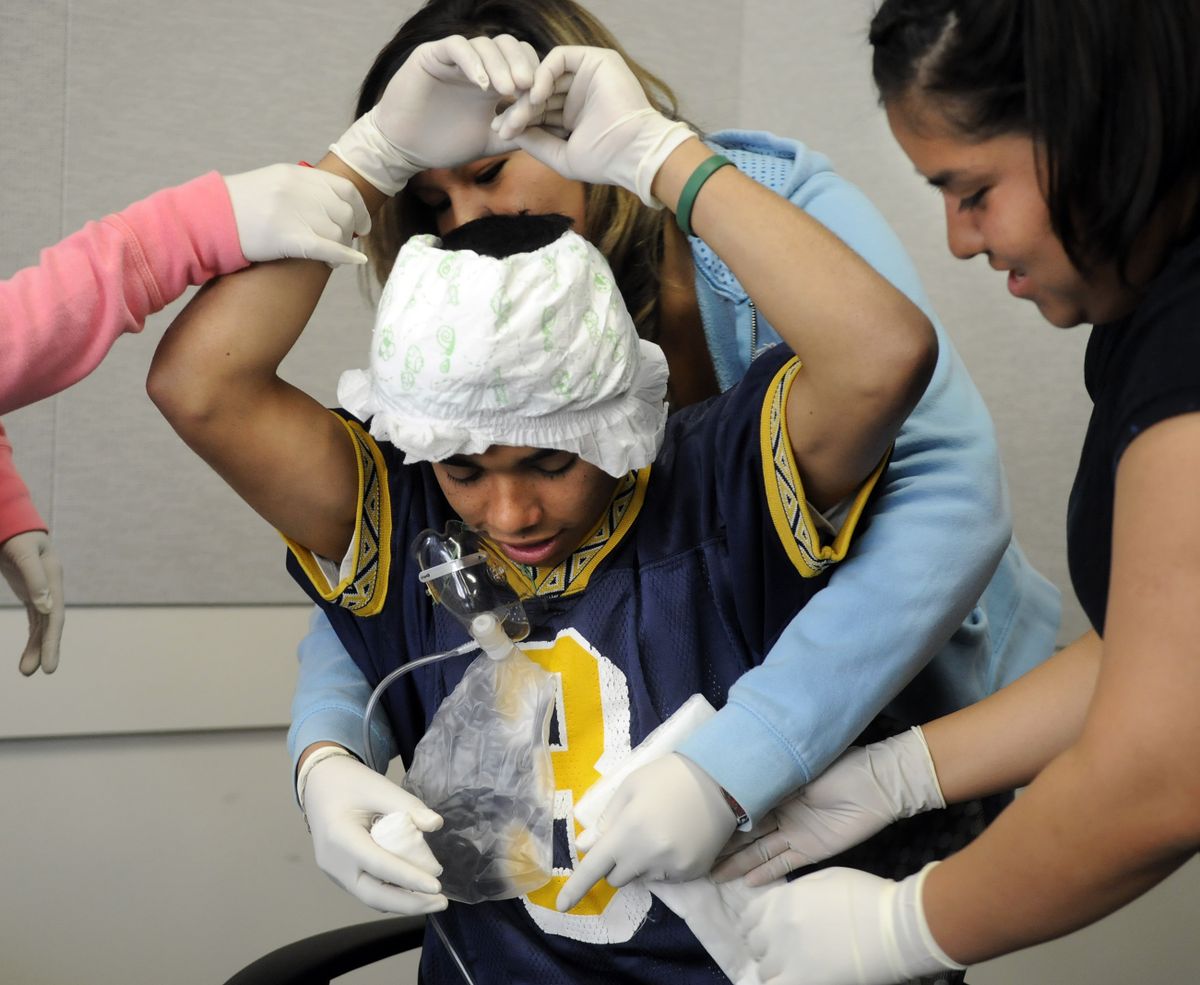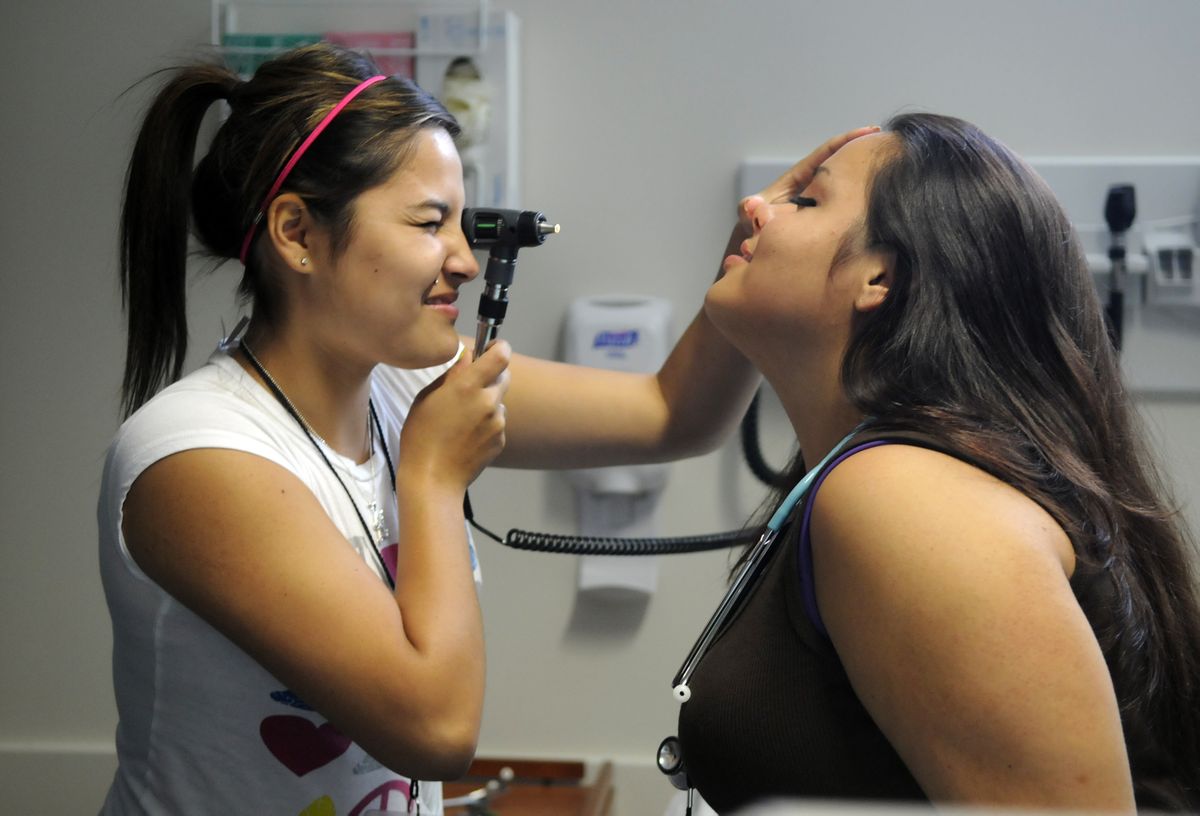Native American students get glimpse of medical careers
Sunshine Perry, 17, of Fort Hall, Idaho, and 16-year-old Brittenie Pongah, right, of Pocatello, Idaho, practice first aid on Josh Berteaux, 15, of Long Beach, Wash. (Dan Pelle / The Spokesman-Review)
Growing up on the Warm Springs Reservation in Oregon, Krysten Allen-Alford has seen more than her tribe’s share of teenage pregnancies.
“Thirteen-year-old girls having babies” is not uncommon, said Allen-Alford, who at 16 is determined to do something about the health care of her people by becoming a pediatric nurse.
“I just want to be somebody who helps out,” she said, “and going to college will prepare me.”
Allen-Alford is one of 25 American Indian high school students from throughout the Northwest attending a health care camp at Washington State University’s Spokane campus this week.
The Na-ha-shnee Native American Health Science Institute is designed to show students such as Allen-Alford they can make a difference through careers in health care. The students will attend workshops in medicine, pharmacy, physical therapy, speech and hearing, mental health, exercise physiology and nutrition.
In the 14 years since the program began, 70 percent of participants in the annual camp have gone on to college, said Robbie Paul, director of recruitment and retention for Native American Health Sciences at WSU-Spokane.
Though not all of them have pursued degrees in health care, Paul said, 38 former camp participants have gone on to become nurses, and 80 percent of them have returned to their reservations or tribal communities.
Two of Paul’s former students, who were camp counselors last year, have applied to attend medical school at the University of Washington, she said.
That is what the program is all about, Paul said: addressing the critical health care disparity among Native Americans by introducing students to a variety of medical professions.
Earlier this year, U.S. Health and Human Services Secretary Kathleen Sebelius discussed the disparity as she called for an increase in Indian Health Service funding. American Indians and Alaska Natives have a lower life expectancy than the general U.S. population, dying at far higher rates from tuberculosis, alcoholism, diabetes, unintentional injuries, homicide and suicide, according to the Indian Health Service.
Janet Katz, a professor of community health at WSU-Spokane, said camp attendees learn that as health care professionals, they could become important to their tribes’ welfare.
“The concept of giving back to your community is a fundamental ideology of Native American culture,” Paul said.
Allen-Alford said she hopes to attend nursing college in Spokane or Portland. The Confederated Tribes of the Warm Springs Reservation gets relatively good health care, she said, but “we could use more health care professionals, especially Native ones.”

